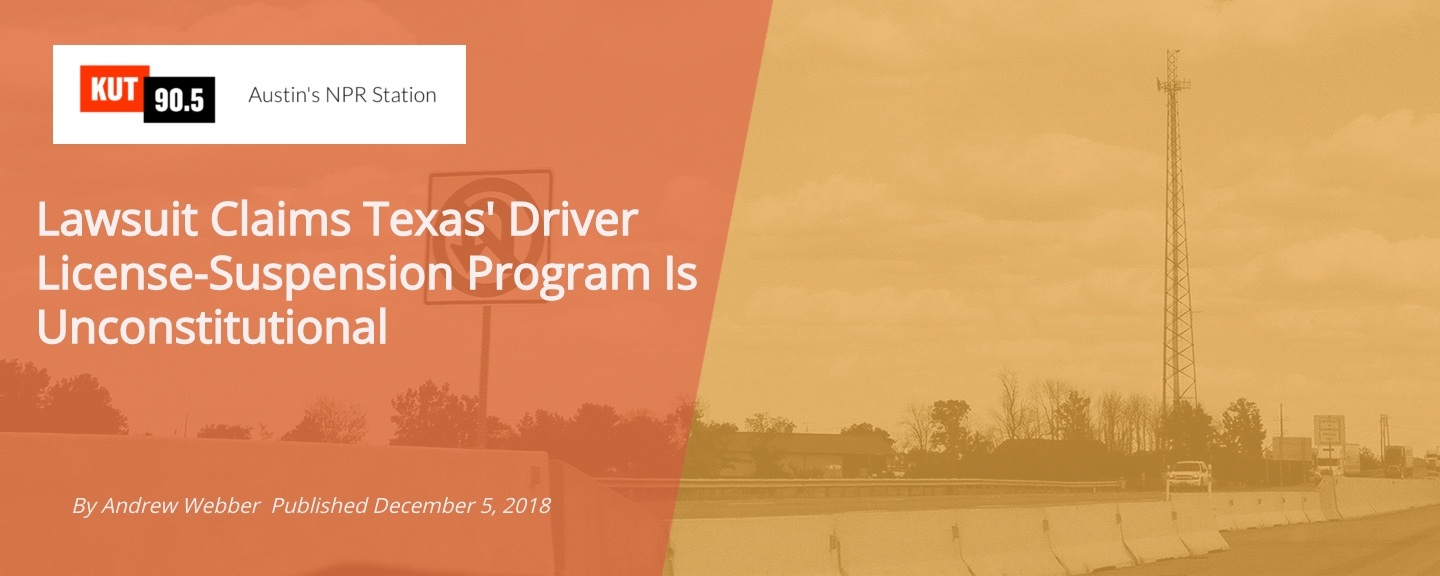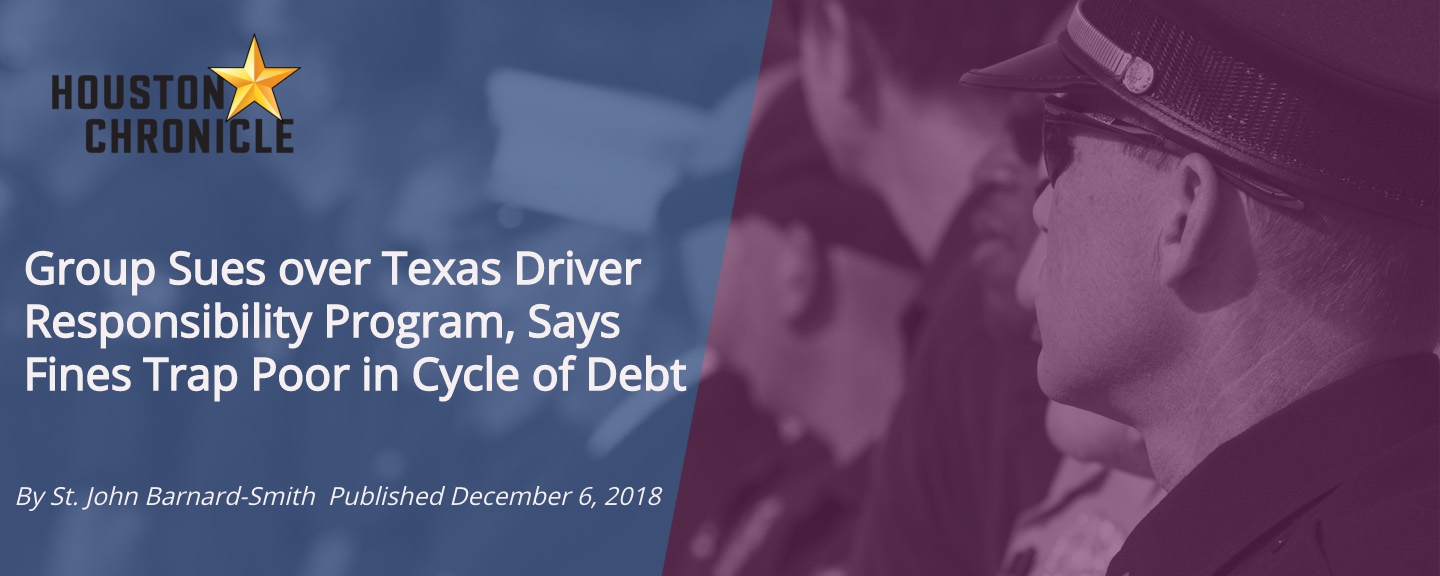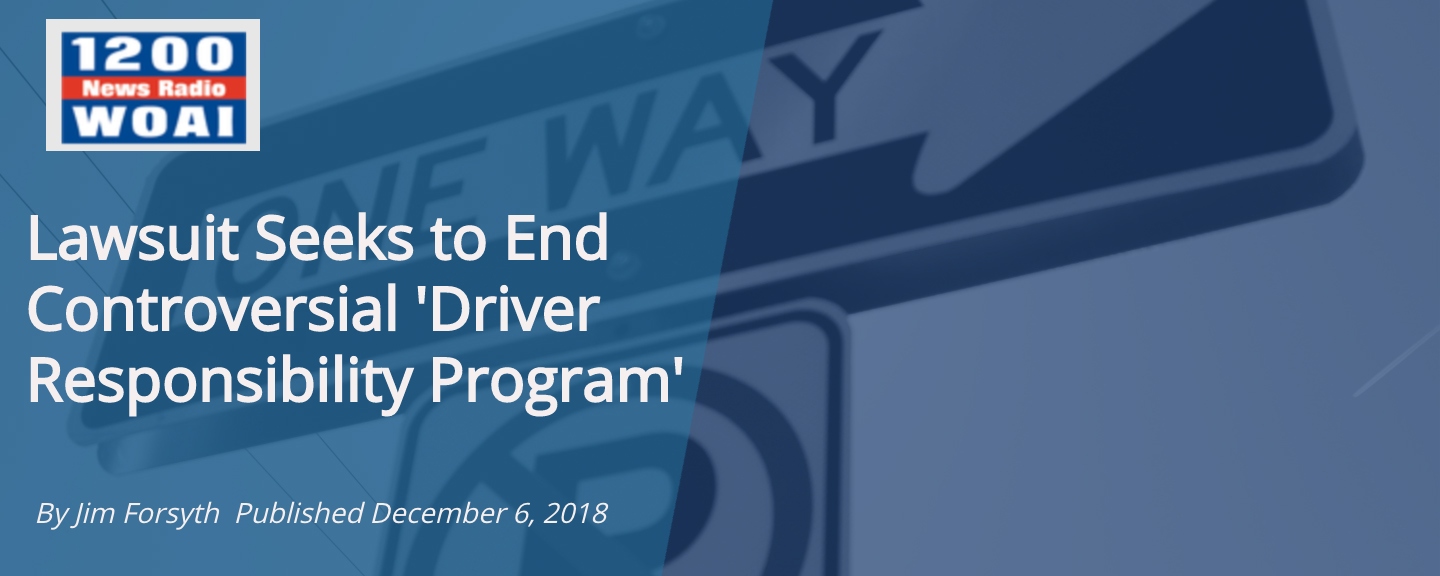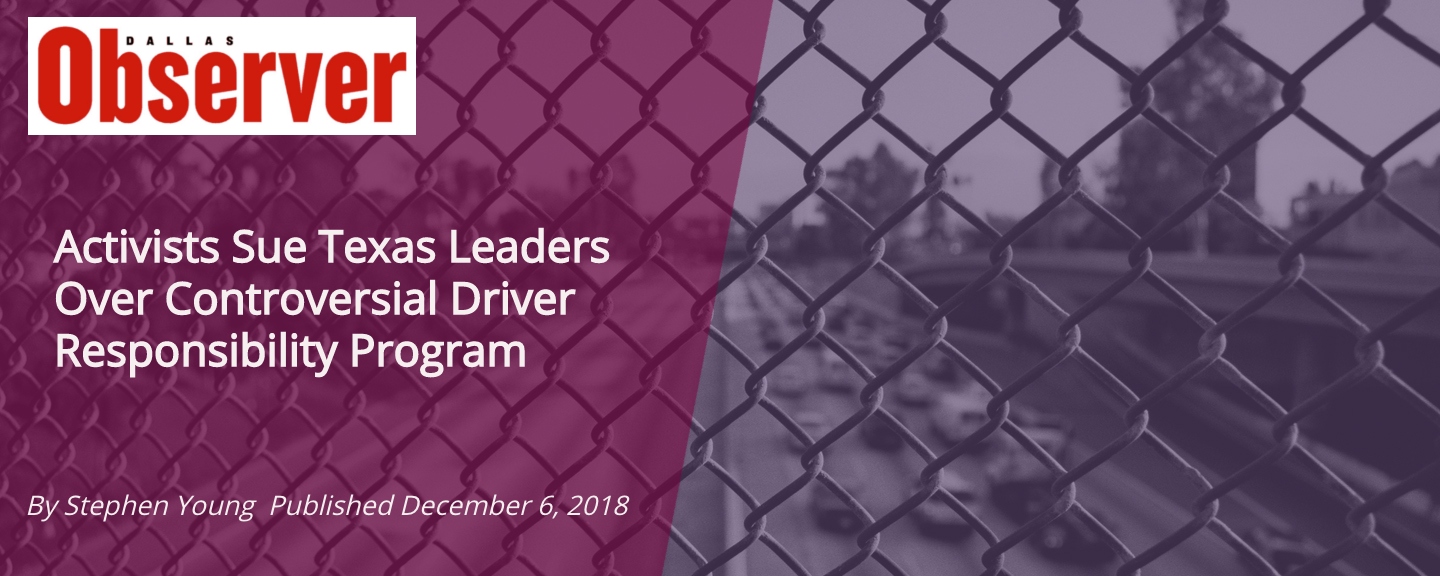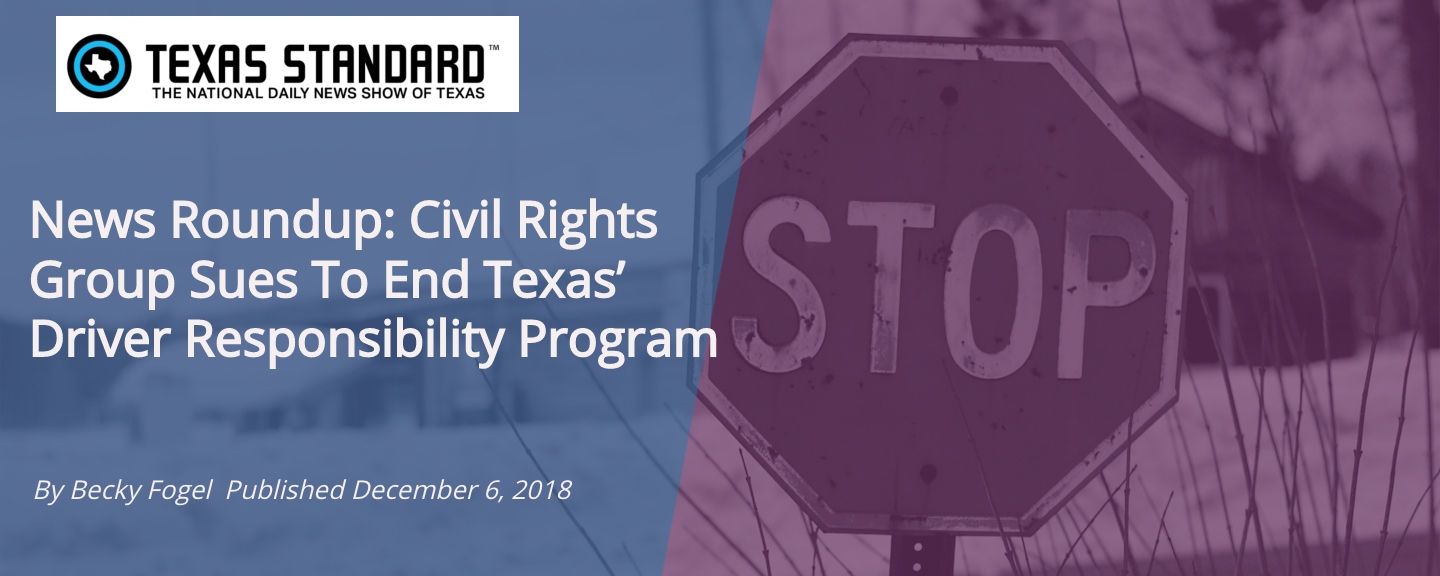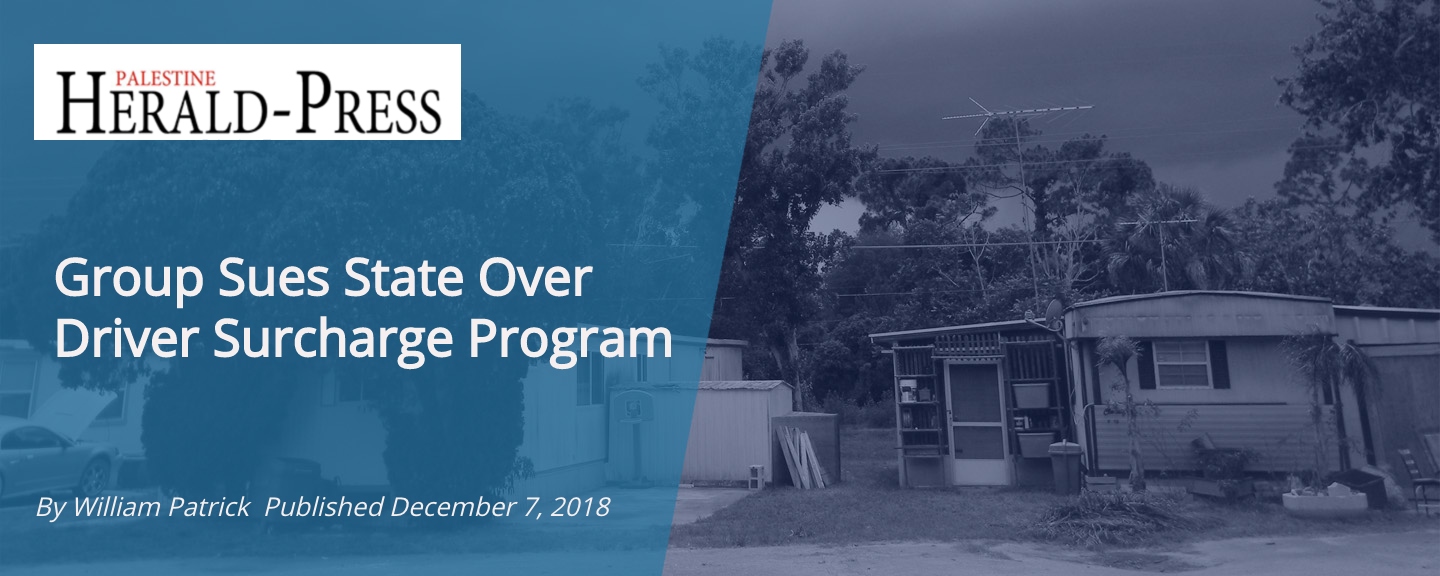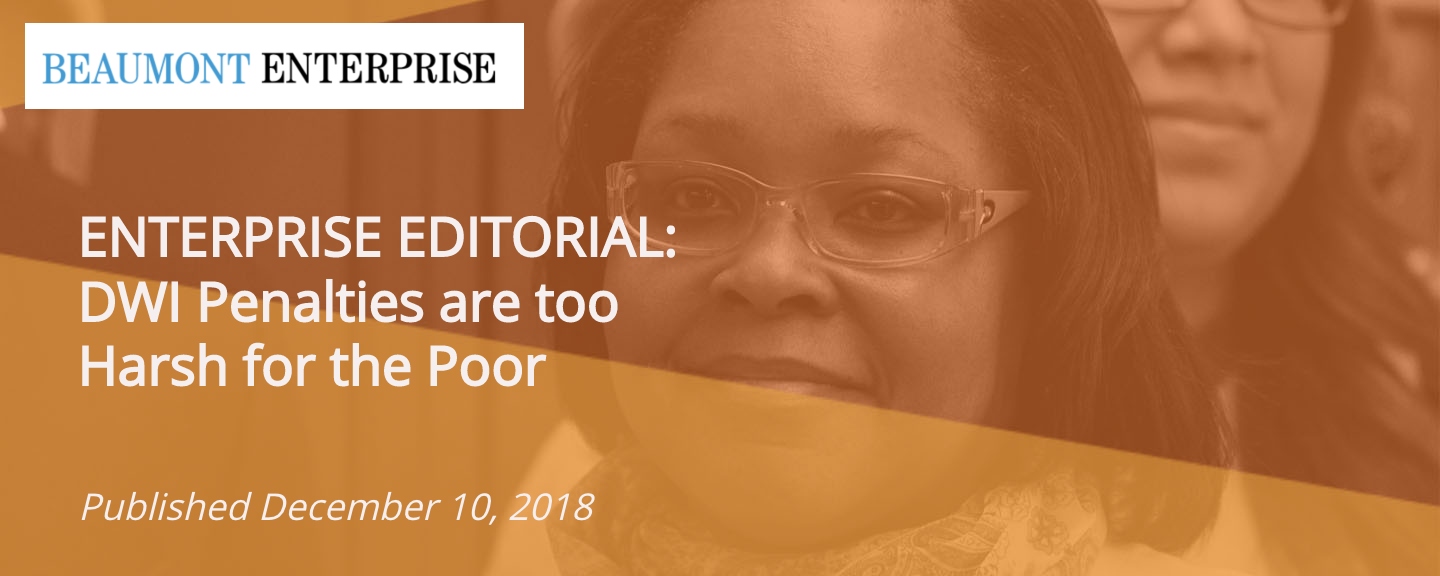Rodriguez v. Mach
Texas’ Driver Responsibility Program (DRP) was an unconstitutional extortion scheme aimed at harming indigent Texans. By tacking on additional surcharges to a driving infraction fine, Texas was going out of its way to coerce funds from their most needy residents. In addition, their practice of total license suspension until the debt was paid made it less likely that the government would ever receive its intended fees. No punishment can increase the likelihood that a person will pay a debt that they are unable to pay, especially when their means of transportation is revoked.
Texas, under the auspices of the DRP, was suspending licenses of residents who were unable to pay their arbitrary debt to the state, regardless of the reason for nonpayment. Oftentimes, victims of the program were never properly notified that they owed additional fines, leading them to drive around on invalid licenses—unknowingly breaking another law.
Although the law required an indigency waiver, the process of obtaining one was so convoluted that even local counsel were unsure of how to obtain a waiver, or even how the new fees through the waiver were calculated. The state had forgone its duty to protect its residents by putting the onus on them to figure out how to best meet the requirements of this program.
There were four named plaintiffs in this case. Graciela Rodriguez, a 76 year-old grandmother, took public transportation four hours each way to be an in-home nurse for people younger than her in order to pay her fine. Charles Stevens, a veteran, had to move into his parents’ house in order to make ends meet. Khalid Salahuddin is a disabled veteran who could not obtain the physical therapy he needed because his VA clinic was inaccessible by public transportation. And Nathan Alexander found himself living in a homeless shelter when he lost his job over his license suspension.
We challenged this practice on the grounds that it violated Equal Protection and Due Process rights and the fundamental right to travel. The law was counterproductive -- attempting to coerce payment by taking away people's ability to drive, thereby impeding their ability to work and earn money -- and therefore failed rational basis review. The law also punished people simply for being poor, a violation of their substantive due process rights. Automatic suspension also deprives impoverished drivers of a protected property interest, their driver's licenses, without an ability-to-pay hearing, a violation of their procedural due process rights.
In response to our lawsuit, the Texas legislature repealed the DRP. It passed through both houses, and was finally signed into immediate and retroactive action, effectively ending the DRP once and for all. As a result, more than 1.4 million Texans’ licenses are now no longer suspended because of DRP surcharges, and approximately 600,000 Texans became eligible to have their driver’s license reinstated since the repeal of the program.
case details
Opposition to Motion to Dismiss
Status: Statute repealed
Date Filed: 12/05/18
Plaintiffs: Graciela Rodriguez, Charles Stevens, Khalid Salahuddin, and Nathan Alexander on behalf of proposed class of over 1.4 million
Defendant:
Steven Mach, Chairman of the Texas DPS
Steven McCraw, Director of the Texas DPS
Skylor Hearn, Deputy Director of Administration and Services of the Texas DPS
Amanda Arriaga, Division Director of the Driver Licesnse Division of the Texas DPS
Greg Abbott, Governor of Texas
Jurisdiction: The U.S. District Court for the Western District of Texas, San Antonio Division
Partners: Brian McGiverin of the Austin Community Law Center
IMPACT
On Friday, June 14, 2019, Governor Abbott signed into law a repeal of the Driver’s Responsibility Program. As a result, more than 1.4 million Texans’ licenses are now no longer suspended because of DRP surcharges, and approximately 600,000 Texans became eligible to have their driver’s license reinstated.

